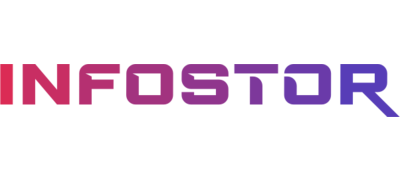Following its acquisition of inboxx in May, which doubled the size of the company, dataglobal is expanding beyond its European roots into the U.S. market with the launch of a data/storage management suite aimed at the Fortune 5000.
The company’s newly renamed dg suite combines a number of disciplines, including storage resource management (SRM), hierarchical storage management (HSM), enterprise resource management (ERM), enterprise content management (ECM), information lifecycle management (ILM) and inboxx’s Unified Archive platform into an integrated suite that the company refers to as Unified Storage and Information Management (USIM).
dataglobal also announced that it has formed a partnership with Microsoft that entails the integration of the dg suite software with Microsoft’s Windows Server 2008 R2 File Classification Infrastructure. FCI provides file classification, eDiscovery, information governance and compliance, records management and security functionality. FCI is a policy-based identification system for unstructured data that enables IT organizations to place data on the most appropriate storage media based on access frequency and business criticality.
Integration of FCI with the dg suite enables a combination of Windows file scanning, classification, sorting, migration and archiving at the enterprise level.
dataglobal, which has been in business since 1992, is headquartered in Germany and now has a dataglobal U.S. operation in Los Gatos, CA. The company claims more than 1,800 installations, including companies such as Audi, Bosch, Mars, Toshiba and 3M. Today marks the official launch of the dg suite in the U.S.
The dg suite combines functions such as data analysis, classification, migration, archival, chargeback and storage performance monitoring (via the SNIA SMI-S specification) to address compliance, eDiscovery, storage reclamation and data privacy issues, which typically requires multiple point solutions from multiple vendors.
“The integration of inboxx’s archiving with dataglobal’s SRM software gives you a single archive with a variety of utilities, such as classification and indexing, that can receive data from a variety of sources, including email, file systems, ERP and ECM software and others across virtually all platforms,” says Noemi Greyzdorf, a research manager with IDC. “You can aggregate all business-relevant data in one place and then classify it to make search easier, as well as execution of retention policies.”
Additional differentiators of the dg suite, according to Greyzdorf, include platform (server/storage) independence, the ability of the software to leverage its own or the storage systems’ data retention management, and a single archive with pull and push handled by one integrated solution. “In addition, you can view the environment from a variety of perspectives, including hardware, business applications, data type, users, etc,” says Greyzdorf.
The dg suite has three primary data classification/organization functions: analyze (which includes data classification), assess (based on data access frequency and business criticality), and action (data management). The company claims that its Analyze Engine module can scan more than 500 million files per hour. The assess phase creates views of a company’s data, and includes single instancing (data deduplication) to eliminate duplicate files. And the action phase automates functions such as storage tiering, risk management, eDiscovery and knowledge reuse.
In addition to Microsoft, dataglobal’s partners include vendors such as EMC, HP, Hitachi, IBM, LSI, NetApp, Oracle and Permabit.
Integration of inboxx’s archiving software with dataglobal’s SRM software was completed this month, representing the unification of storage and information management with a single repository. Prior to dataglobal acquiring inbox, the two companies had a three-year OEM partnership. inboxx’s archiving software supports Exchange, Lotus Domino, Novell GroupWise, SMTP, SAP R/3 and Microsoft Dynamics ERP, File and SharePoint files, instant messaging and call center data.
